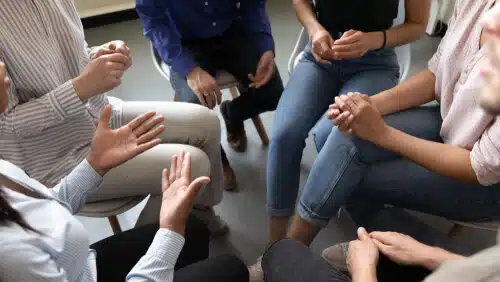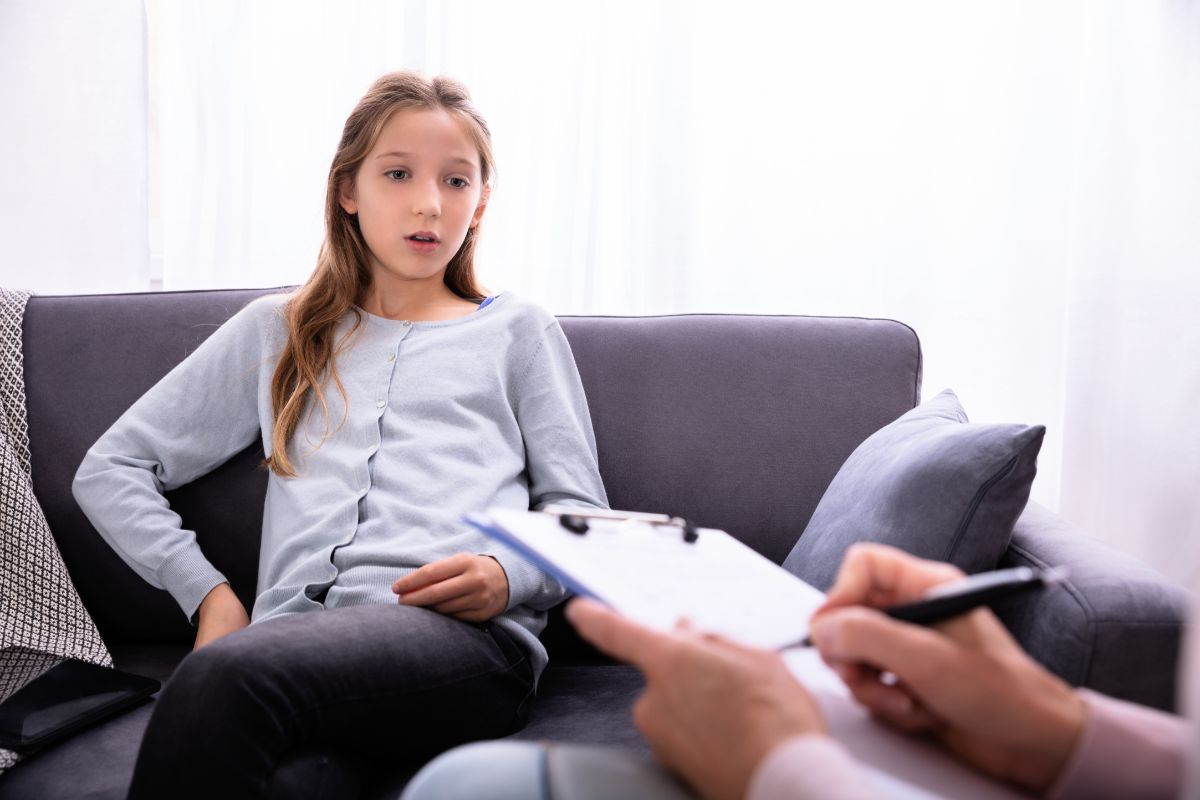
How Important is Aftercare? 3 Things You Need to Know
Deciding to seek treatment to overcome addiction is the first and one of the most important decisions someone who struggles with addiction will face. However, choosing to begin treatment is not the last decision on your journey to recovery. Successfully completing a 30, 60, or even 90-day addiction treatment program is vital to detoxing and attaining sobriety. The lessons learned as part of the therapeutic program will provide relapse prevention education that is vital to improving your chances of lasting recovery. The evidence-based treatment models used at a teen-focused addiction treatment center like Beachside will help your teen learn to understand better the roots of their addictive behaviors and ways to avoid relapse triggers safely. However, what happens after treatment ends? Does that mean your teen is cured? In short, no.
Aftercare and aftercare planning are essential parts of a comprehensive treatment plan. Ensuring your teen has access to proper aftercare will help them slowly and safely transition back to their day-to-day lives with a continued high level of support. Without proper aftercare, those recovering from addiction, either substance-related or behavioral, often struggle with isolation and other challenges related to how recovery has changed their response to triggers, other stressors, and even their day-to-day activities. These challenges and triggers often lead to relapse.
What is Aftercare?
Addiction is a disease. For many, it is a disease characterized by bumps, setbacks, and instances of relapse on the road to recovery. Addiction does not have a cure; however, with a comprehensive addiction treatment program and a robust aftercare program, long-term recovery is within reach.
Aftercare is a vital component to preventing relapse from any addiction. Relapse does not occur only in cases of alcohol or drug addiction. It can happen with any behavioral, food, or substance addiction. For aftercare to be the most effective, one should transition directly to aftercare programs immediately after completing their treatment program at Beachside. Aftercare programs are designed to ensure your teen has access to a supportive and comfortable environment where they can speak openly about their feelings, struggles, temptations, and strengths throughout the recovery process. Staying connected to the recovery community and support system that they have become comfortable with is one of the number one ways to remain in recovery and prevent relapse as the level of support provided during addiction treatment is slowly reduced.
Components of a Successful Aftercare Program
The design and structure of a successful aftercare program will vary from person to person. Much like the design of an addiction treatment program, the specific needs your teen has will differ from those of someone else. Consequently, the elements of their aftercare program must be unique to their ongoing treatment goals. Depending on the specific treatment center, there are several resources, activities, and support elements that can be part of an aftercare plan. As your teen approaches the end of their treatment program at Beachside, members of their treatment team will work with your teen and family to develop a specific and individualized plan.
Some common elements often included in aftercare programs may consist of transitioning to an intensive outpatient program (IOP), ongoing group and individual therapy sessions, attending 12-step or peer support groups, and ongoing check-ins with their case manager or treatment provider. Other aftercare services may include help with educational or academic needs, help to find employment, help scheduling medical appointments, and helping your teen ensure they have a strong support system to lean on after completing treatment.
3 Important Benefits of Aftercare
Aftercare has many essential benefits that help someone recovering from addiction maintain lasting recovery. Because aftercare occurs immediately after treatment, it can help your teen transition smoothly into the post-treatment environment without any lapses in care or support.
Aftercare provides community
If you are new to recovery, you may notice a significant, even dramatic, shift in your social circle. This can be a considerable challenge to many addicts in the early stages of recovery. Those friends who you drank with and used to spend time with are often no longer a part of your circle. Maintaining sobriety usually requires forging ahead with a clean slate. Quite often, fellow participants in aftercare programs are those same individuals you have developed relationships with during treatment. Therefore, they are on the same path, and they understand many of the struggles and challenges that you face.
Additionally, other members of aftercare groups are those who have been down a similar path before. They may be six months, one year, maybe ten years into their recovery. They understand what you are going through now and likely the barriers to ongoing recovery that you will experience down the road.
The social networks developed as part of an aftercare program provide newly recovered addicts with an outlet for communication. Often, the early days of recovery feel restricted and isolated. In an aftercare program, fellow peers offer guidance and support to help you get back on and stay on the right track. The community (new peers) that you interact with as part of aftercare is a vital component for relapse prevention. During peer sessions recovering addicts can speak openly about their feelings, temptations, struggles, and strengths as they continue to work through the recovery process. Maintaining a connection to the recovery community and the support system that you have become comfortable with is one of the number one ways to remain sober and prevent relapse. Additionally, peers who are members of your recovery community provide social support should relapse occur.
Aftercare makes transitioning easier
Throughout your teen’s addiction treatment program, members of their treatment team have been available to provide guidance and support regardless of the time of day. One of the most significant benefits of a residential treatment setting is the availability of 24/7 care. Someone is always on hand to provide emotional, medical, or spiritual support when needed. As your teen’s treatment program comes to an end, the level of support they receive from the treatment environment will begin to decline. This is inevitable. Part of completing a comprehensive, evidence-based treatment program at a teen-focused treatment center like Beachside is transitioning back home to a “normal” day-to-day routine. Unfortunately, the transition process is not always easy.
Addiction is a disease. It is a disease that, for the most part, does not have a cure. It is also described as a chronic, relaxing disease. This means many who completed treatment programs will experience relapse. Data from the Substance Abuse and Mental Health Services Administration (SAMHSA) indicates relapse rates for many addictions are as high as 60%. Aftercare provides the opportunity for your teen to continue receiving ongoing support in an intensive outpatient or outpatient treatment environment.
Additionally, as part of a comprehensive aftercare program, your teen will continue to participate in individual and group therapy sessions as well as the peer support sessions mentioned above. This provides an opportunity to continue to learn and practice relapse prevention skills to use when faced with triggering events. Aftercare also provides a “step down” or intermediary treatment environment between the fully supportive environment of an inpatient treatment center and the environment of the home.
Aftercare programs provide access to vital services
All aftercare programs are different. However, many aftercare programs provide access to vital services for participants. Depending on the nature of the aftercare program, support services such as sober living communities, legal assistance, educational assistance, employment assistance, or ongoing medical services may be available. Additionally, continued mental health monitoring and relapse prevention education are often a significant part of an aftercare program.
Regardless of the type of addiction for which someone seeks treatment, comprehensive, evidence-based therapy at a residential treatment center is often the best place to start. During treatment, those motivated to seek sobriety or recovery from various behavioral addictions can detox and participate in therapeutic programs designed to help them better understand the roots of their addiction and how to overcome addictive behaviors. But treatment is not the end of the recovery process. In reality, it is just the beginning. Choosing to seek treatment is the first, although most important, step on what is often a lifelong journey of addiction recovery.
The days leading up to the end of the treatment program can be scary. Worries about what will happen next, maintaining sobriety, and how to handle triggers are often common. Working with members of the treatment team to create a comprehensive aftercare program can help to alleviate many of these worries. Aftercare programs provide necessary, ongoing support to ensure that those new to recovery can continue to reinforce the good habits that they learned and practiced during therapy. It also provides a strong circle of support that is often so necessary during the early days of recovery. It can be challenging to seek out and make “new friends” who share a similar outlook on addiction recovery and sobriety. Aftercare provides that opportunity.
If your teen or a loved one is currently participating in a therapeutic program at Beachside, it is essential they work with their treatment team to design an aftercare program specific to their needs and goals. As previously noted, just like addiction treatment plans, aftercare plans are unique. One could take advantage of many possible services, but not all services or benefits are necessary for each person. The plan that works best for your teen may not be the best fit for somebody else. If you would like to learn more about how aftercare planning fits into a comprehensive addiction treatment program and how aftercare can provide lasting recovery benefits for your loved one, contact us at Beachside today.




